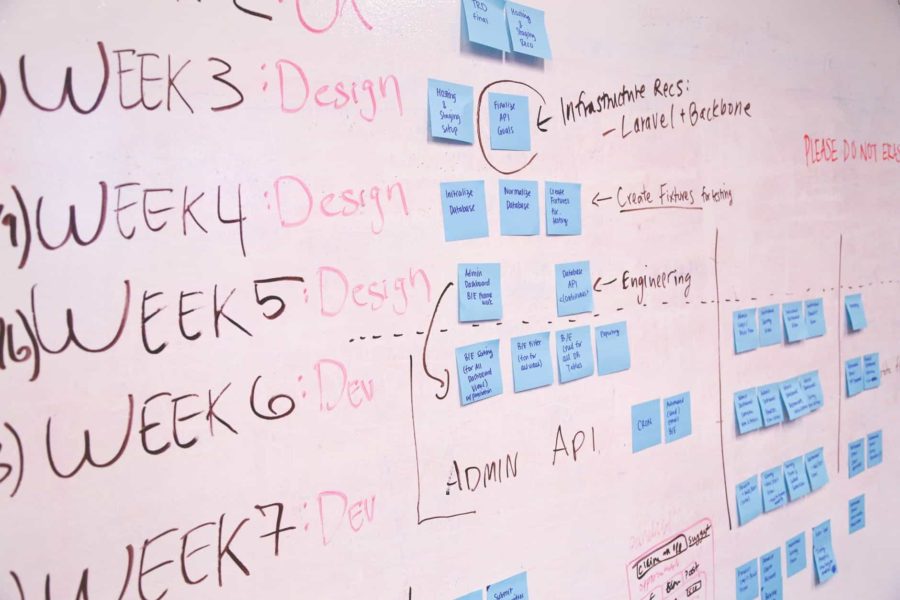How the PMP prepared me for other careers
I chose to pursue the PMP certification in 2012. At that time I believed that the PMP would prepare me to better handle the projects I had been managing for years. What I didn’t realize at the time was how the PMP would prepare me for the rest of my career.
So what is the PMP?
PMP stands for Project Management Professional and it is the gold standard for project managers. According to Global Knowledge, the PMP was the 7th highest paid certification in 2021. The PMP is a product of the Project Management Institute, or PMI for short. The certification has been around since the mid-1980s and is recognized around the world as a symbol of excellence.
PMI offers numerous certifications in addition to the PMP and for many, the Certified Associate in Project Management or CAPM, is a great place to start. Individuals seeking the CAPM can take the test after completing 23 project management training hours as long as they also hold a high school degree or higher.
What I learned from the PMP (besides managing projects)
The PMP provides a framework for managing projects. This framework consists of Initiating, Planning, Executing, Monitoring & Controlling and Closing projects. Throughout the lifecycle of the project, the Project Management Body of Knowledge (PMBoK for short) teaches the use of Inputs, Tools & Techniques and Outputs to perform the work.
One of the first things I learned from studying for the PMP and applying the knowledge I gained was structure. Before I started preparing for the PMP exam, my approach was far less refined. It would be hard to say I had a process at all. By 2012, I had been in IT consulting for over 15 years and I felt I had a really good grasp on just getting things done. If you told me you needed 100 computers set up at a new campus, I just made it happen. The PMP taught me how to step back and to take a more thoughtful approach to everything I was doing.
I was fortunate to work for a PMO that was managed by a long-time project manager that taught project methodology as a way of giving back. He mentored dozens of future project managers over the years. One of the lessons he taught first was that almost everything we do can be thought of as a project. The example he loved to share was the act of going to work in the morning. You know what the scope is (get to the office), you identify risks (weather, traffic, etc.), and you have a schedule to work in. I began breaking down many of my work activities this way and doing so made a huge difference in the quality of my work.
Using the Tools
Do I use all of the tools and techniques as a project manager? No, but I do take advantage of many. Some of my favorites are identifying stakeholders, defining scope, identifying risks and planning communications. Using a handful of the tools taught by the PMP simplifies nearly every project I’m involved with.
One of the things I learned from going through this process was the idea of making things predictable and repeatable. If you aren’t documenting what you’re doing, then you are always the only one that can do that thing. The term we applied to this in our project management office was to shift left. The more work we do upfront, the less work we will have to do throughout the project lifecycle.
Imagine going to a job site and needing to dig a hole. You have a team of people with you, but you are the only one with any knowledge of what has to happen. Put your hands in your pockets and dig the hole. If you don’t explain to the team exactly what has to happen, you might wind up being the only one with a shovel in your hand and a bunch of workers watching you do the work by yourself.
Learning the language
Nothing prepared me more for working at the enterprise business level than the PMP. Aside from the skills the certification imparts, you also learn to communicate with people leading projects. Even if you never intend to be a project manager, going through this training will give you an understanding of the bigger picture that a PM is working with when you’re part of their team. I found it immensely valuable to not just know the words being said but to understand the full context of the conversation.
Who would benefit from the CAPM or PMP?
I’ve encouraged individuals from all levels of business to dive into learning project management. I am a big believer in self-led education and I believe that if you don’t wake up every day to make the next day better, you’re cheating yourself. The CAPM is extremely approachable and there is an enormous wealth of information on the topic readily available on the internet.
How to prepare
Some of the most common resources include Udemy or LinkedIn Learning. You can quickly get your 23 contact hours for under $20 on Udemy for example. I always recommend going to Amazon and buying the Rita Mulcahy Exam Prep. The definitive guide for the CAPM and the PMP will always be the Project Management Body of Knowledge from PMI and it is a must-read as part of the learning process.
My recommended process:
- Watch a course on Udemy to familiarize yourself and complete 23 training hours.
- Buy the Rita book and the PMBoK.
- Read books, focus on the ITTO sections.
- Buy prep tests and go through the banks of questions.
- Review questions in the books and find answers.
- Get engaged on Reddit and other forums, look for lessons learned.
- Register for the test and take it.
If you would like more information about what constitutes a project, you can read my post over on Medium for a bit more detail.
C9
Resources:
https://www.globalknowledge.com/us-en/resources/resource-library/articles/top-paying-certifications/#gref
https://www.project-management-prepcast.com/pmp-itto




